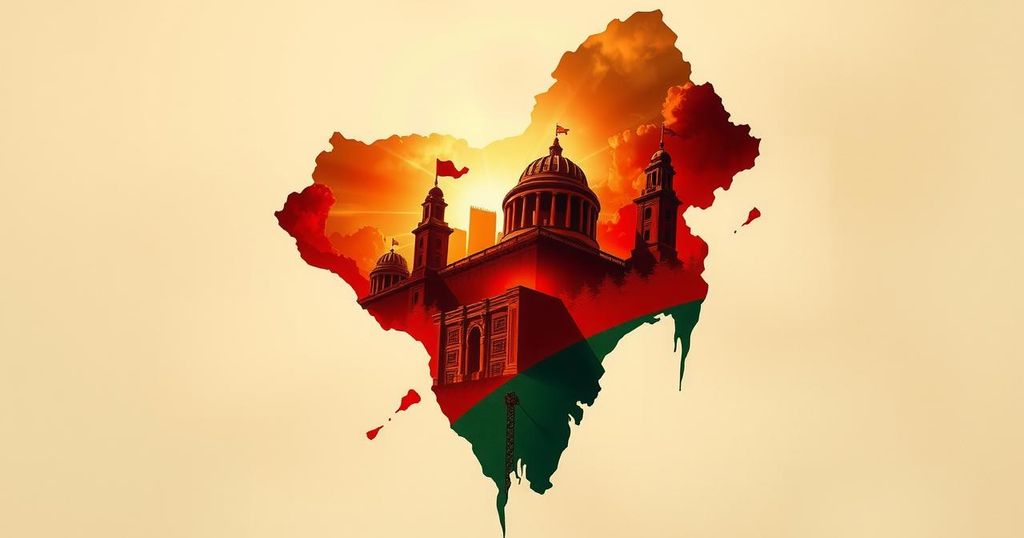The Sudanese military, led by General Abdel Fattah al-Burhan, plans to form a new government after regaining control of Khartoum from the RSF. Burhan proposes a technocratic wartime government but will not negotiate with the RSF. The conflict has caused significant humanitarian crises, with accusations of atrocities against both sides. Recent military victories have shifted control, yet the RSF remains dominant in western Sudan.
The Sudanese military is calling for international diplomatic support in forming a new government, which it plans to establish after regaining control of the capital, Khartoum, from rival paramilitary forces. The army led by General Abdel Fattah al-Burhan has recently recaptured several areas in the city that were previously held by the Rapid Support Forces (RSF).
At a recent gathering with supportive politicians, General Burhan announced his intention to create a “technocratic” wartime government, insisting that negotiations with the RSF would not take place. He emphasized the need for a new constitution prior to the transitional government’s formation, branding it as a caretaker government that will achieve remaining military objectives against the RSF.
A statement from the foreign ministry urged the international community—specifically the United Nations, African Union, and Arab League—to endorse a roadmap for national consensus to establish peace and stability in Sudan. The army and the RSF, which were once allies, are now engaged in a fierce power struggle that has resulted in nearly two years of conflict, displacing 12 million people and leading to starvation for many.
The conflict, which ignited in April 2023 following disagreements between General Burhan and RSF leader General Mohamed Hamdan Dagalo over governmental direction, has resulted in a dire humanitarian crisis. Both military factions are accused of committing serious human rights violations against civilians, including genocide in the Darfur region, claims they have both denied.
Recently, the Sudanese military achieved significant victories against the RSF, gaining control in the capital and the Gezira state, aided by enhanced air power and ground support from allied militias. Despite these advancements, the RSF maintains control over much of western Sudan, where intense fighting continues as they seek to solidify their dominance in the Darfur area.
The situation in Sudan remains critical as the military aims to establish a new government following recent territorial gains. General Burhan’s refusal to negotiate with the RSF underscores the ongoing power struggle that has led to widespread humanitarian crises. The international community’s support is being sought to stabilize the region and address the dire conditions faced by millions. Nevertheless, the conflict continues with allegations of severe human rights abuses and widespread violence as both factions vie for control.
Original Source: www.bbc.com






